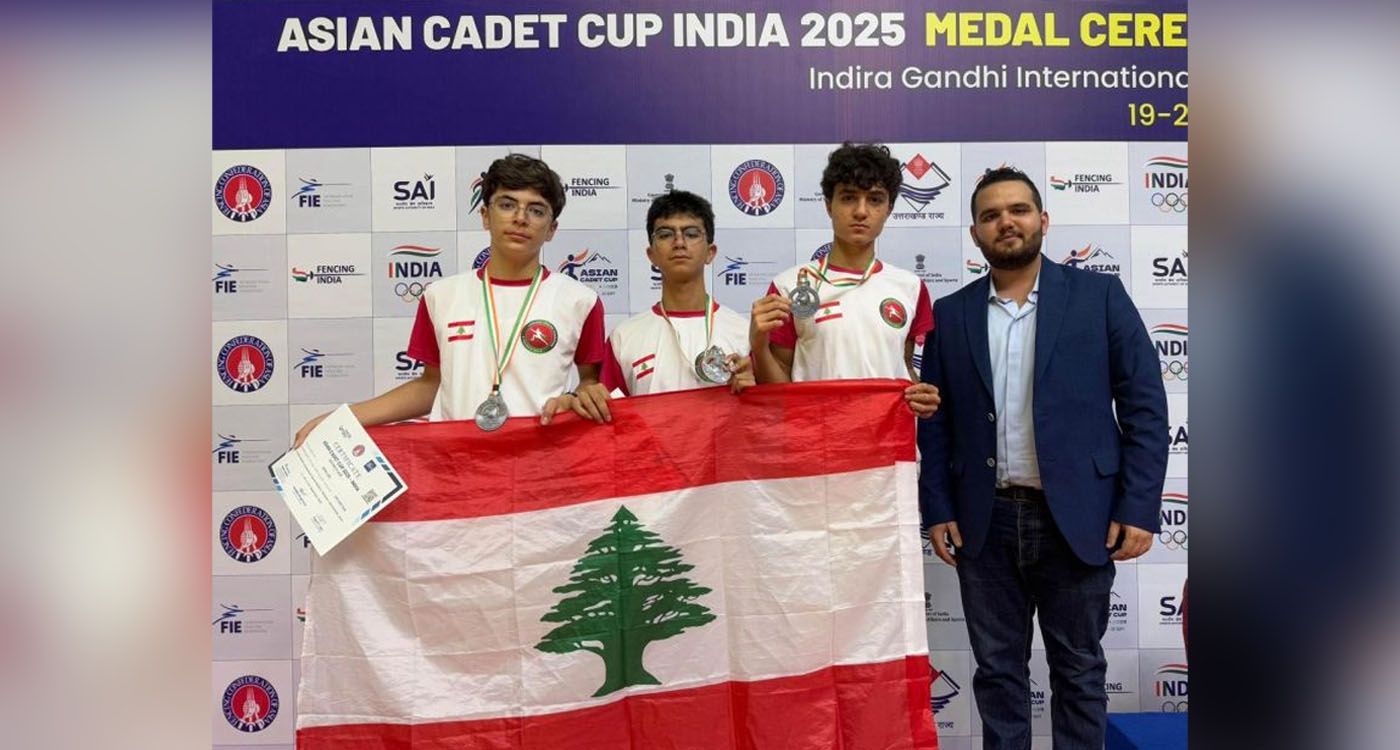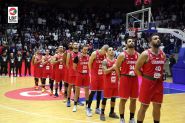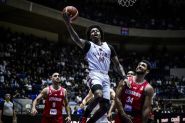
In Haldwani (Uttarakhand, India), Lebanon’s cadet team struck big in men’s team épée: a historic silver medal, the country’s first-ever Asian podium in this discipline.
With their backs against the wall amid tough competition, the trio Louis Dib, Marc Bassil and Gabriel Nehmé strung together top-level relays to reach the grand final. In a last match played under heavy pressure, the Lebanese narrowly fell to India, but they bring home a silver that carries huge weight for the fencing scene in the Land of the Cedars.
What One Medal Changes… in Team Épée
A discipline of precision and nerve, épée allows any valid target, with no “priority” convention. In plain terms: you can hit anywhere, and a double hit counts (both score), which turns every relay into a real-time game of chess. In the team format, nine relays are contested to reach a cumulative score of 45 points (stages 5–10–15… up to 45). The margin for error is minimal: time management, reading arms, millimetric distance, rhythm variations… The young Lebanese checked all these boxes throughout the bracket.
A Solid Run from Start to Finish
Strong in their warm-ups, disciplined in building touches, and clear-headed in the ends of relays, Dib, Bassil and Nehmé handled the high-pressure moments. They managed crunch time right until the end… or almost: the final step, against hosts riding a wave of confidence, was decided on the finest details – those tiny shifts that define a podium.
Positive Signs in Individual Events Too
Individually, Marc Bassil stopped just short of the last four (5th), and Gabriel Nehmé earned a promising 7th place after a run to the quarterfinals. Louis Dib exited in the round of 32, but his collective contribution proved crucial to the team’s rhythm. These results validate the depth of the group and the continuous work being done among the cadets (U17).
Staff, Refereeing and Recognition
The delegation was led by Antoine Oneissy, the president of the technical committee of the Lebanese Fencing Federation, alongside international referee Karim Awada. At the end of the competition, Oneissy received congratulations from Federation president Jihad Salameh, as well as from the entire federal committee – clear signals that this medal sets a new course for structuring the next generation and expand the international calendar.
What’s Next?
Focus now shifts to more advanced training camps and circuits, with one simple objective: to build on this success. This silver puts Lebanon on the Asian map of team épée competitions. The task ahead is to capitalize: increase exposure to high-level bouts, strengthen mental preparation, and keep nurturing that sense of key moments which made the difference in India.




Comments